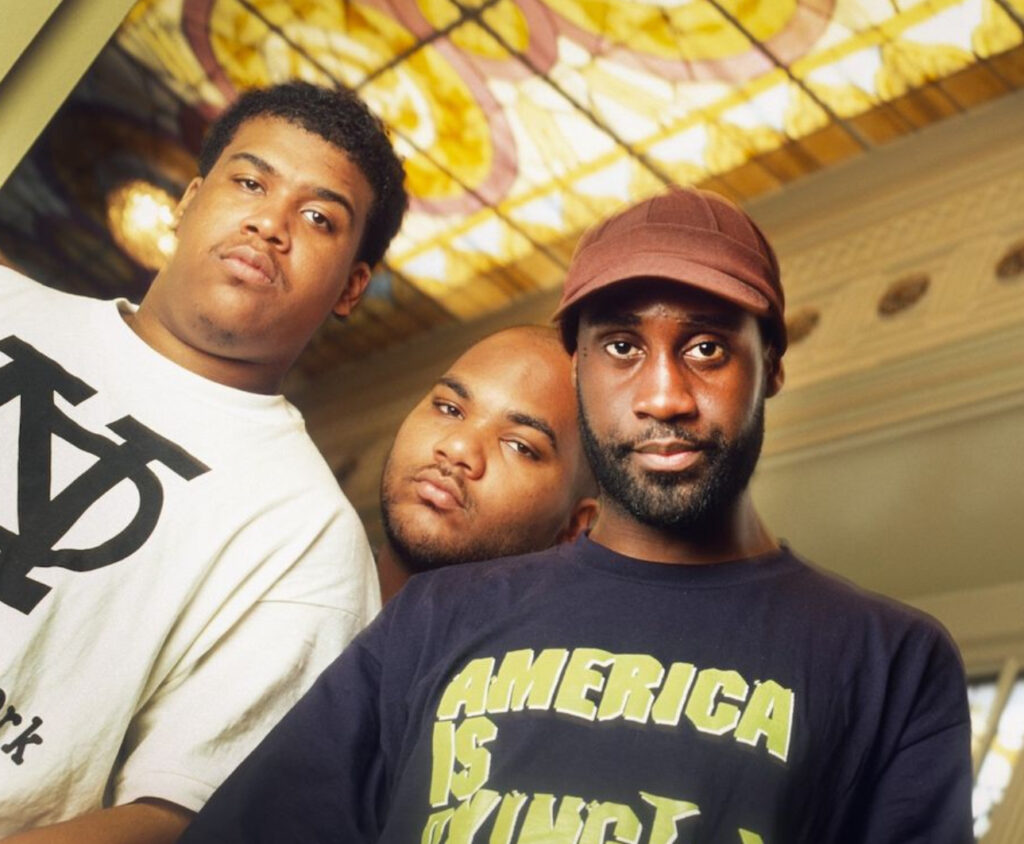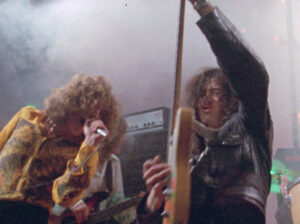In the pantheon of hip-hop history, De La Soul holds a unique and irreplaceable position. From their inception, the trio—consisting of Posdnuos (Kelvin Mercer), Trugoy the Dove (David Jolicoeur), and Maseo (Vincent Mason)—embraced a creative philosophy that challenged the norms of the genre. Their influence transcends music, touching on themes of individuality, creativity, and resistance to convention. As pioneers of alternative hip-hop, De La Soul’s impression reverberates through decades, inspiring a vast array of artists while offering lessons on the possibilities and challenges of pushing boundaries.
Breaking New Ground: “3 Feet High and Rising”
De La Soul burst onto the scene with their debut album 3 Feet High and Rising in 1989, a project that redefined what hip-hop could be. At a time when the genre was often associated with aggressive, street-oriented narratives, De La Soul introduced a fresh, eclectic sound. Produced by Prince Paul, the album married witty lyricism with innovative sampling, drawing from an eclectic mix of sources that ranged from Steely Dan to The Turtles.
The album’s skits, humor, and wordplay were revolutionary, establishing a blueprint that many future artists would follow. It wasn’t just the music that made De La Soul stand out—it was their philosophy. Their concept of the “D.A.I.S.Y. Age” (an acronym for “Da Inner Sound, Y’all”) championed peace, love, and a playful irreverence that set them apart from their contemporaries.
Critics hailed 3 Feet High and Rising as a masterpiece, and its legacy endures. The album not only won critical acclaim but also redefined how hip-hop was perceived by broader audiences, opening the door for a more diverse representation of the genre.
Innovation and Legal Challenges
De La Soul’s groundbreaking approach to sampling became both a hallmark of their sound and a source of controversy. Their ability to weave diverse musical fragments into cohesive tracks demonstrated unparalleled creativity but also led to legal disputes. The 1991 lawsuit over the unauthorized use of The Turtles’ “You Showed Me” was a landmark case that reshaped the music industry’s approach to sampling.
These legal issues had far-reaching consequences, affecting De La Soul’s ability to release their early catalog on digital platforms for decades. This delay not only deprived new listeners of their pioneering work but also underscored the challenges artists face when innovation clashes with outdated legal frameworks.
Culture
De La Soul’s influence extends far beyond their music. They were integral members of the Native Tongues collective, a group of like-minded artists—including A Tribe Called Quest, Jungle Brothers, and Queen Latifah—who emphasized Afrocentric themes, social consciousness, and artistic experimentation. Together, they cultivated an alternative space within hip-hop that celebrated diversity and individuality.
The group’s work also anticipated the rise of genre-blending and cross-cultural influences in music. By seamlessly integrating elements of jazz, funk, rock, and even children’s music, De La Soul demonstrated that hip-hop could be a vehicle for boundless creativity.
Their lyrical content, too, broke new ground. While many of their peers focused on tales of urban struggle, De La Soul explored themes of introspection, identity, and the absurdities of modern life. This willingness to defy expectations made their music resonate with listeners who saw themselves in the trio’s offbeat, relatable personas.
Enduring Relevance
In recent years, the resolution of sample clearance issues has allowed De La Soul’s early work to become widely available on streaming platforms. This has introduced their music to a new generation of fans, reaffirming their relevance in an ever-evolving cultural landscape.
However, the group faced tragedy in 2023 with the passing of Trugoy the Dove. His death marked the end of an era and prompted a renewed appreciation for the group’s contributions to music and culture. Fans and fellow artists alike celebrated Trugoy’s unique voice and vision, recognizing the profound impact of De La Soul’s work.
Lessons from De La Soul
De La Soul’s journey offers several lessons for artists and creators. First, their story underscores the importance of authenticity. At a time when hip-hop was becoming increasingly commercialized, De La Soul stayed true to their vision, creating music that reflected their personalities and values.
Second, their experience highlights the complexities of innovation. While their sampling techniques revolutionized music, they also exposed the limitations of existing copyright laws. This tension between creativity and legality remains a pressing issue in the digital age, as artists navigate the challenges of producing original work in a world saturated with content.
Finally, De La Soul’s legacy serves as a reminder of the power of collaboration. Their work with the Native Tongues collective demonstrated that artists could achieve greater impression by supporting one another and embracing diverse perspectives.
Broader Reflections: Art and Resistance
De La Soul’s story resonates beyond the realm of music, offering insights into the broader cultural and historical context of their time. Their refusal to conform to industry expectations can be seen as a form of resistance—a rejection of the narrow definitions of success imposed by mainstream culture.
In this sense, De La Soul’s work aligns with a broader tradition of artistic resistance. From the Harlem Renaissance to the Black Arts Movement, artists have used their work to challenge dominant narratives and assert their agency. De La Soul’s playful, irreverent approach to hip-hop was a continuation of this tradition, demonstrating that resistance can take many forms.
Impression
De La Soul’s outsized influence is a testament to the transformative power of creativity. By challenging conventions and embracing their individuality, they not only expanded the possibilities of hip-hop but also inspired countless artists to do the same. As we reflect on their legacy, we are reminded of the enduring relevance of their work and the lessons it offers for navigating a rapidly changing cultural landscape.
Their music continues to resonate, serving as both a time capsule of a pivotal era in hip-hop and a source of inspiration for the future. In celebrating De La Soul, we celebrate the boundless potential of art to challenge, inspire, and connect us all.
No comments yet.








